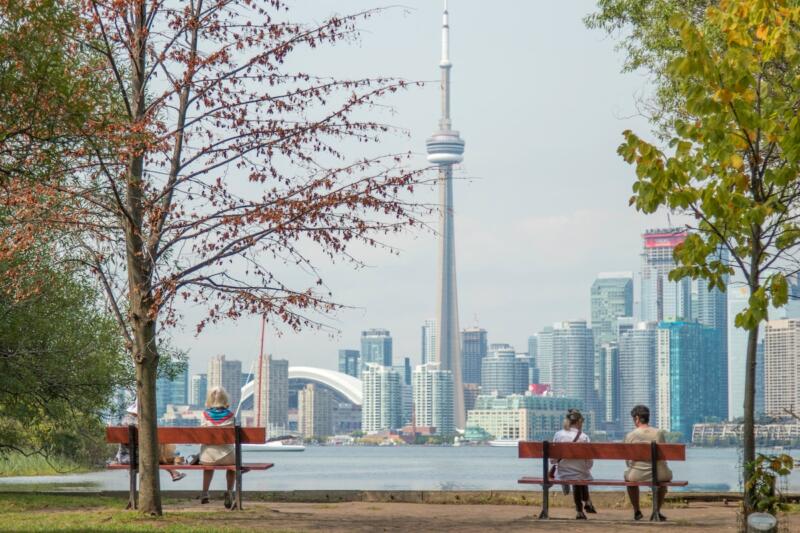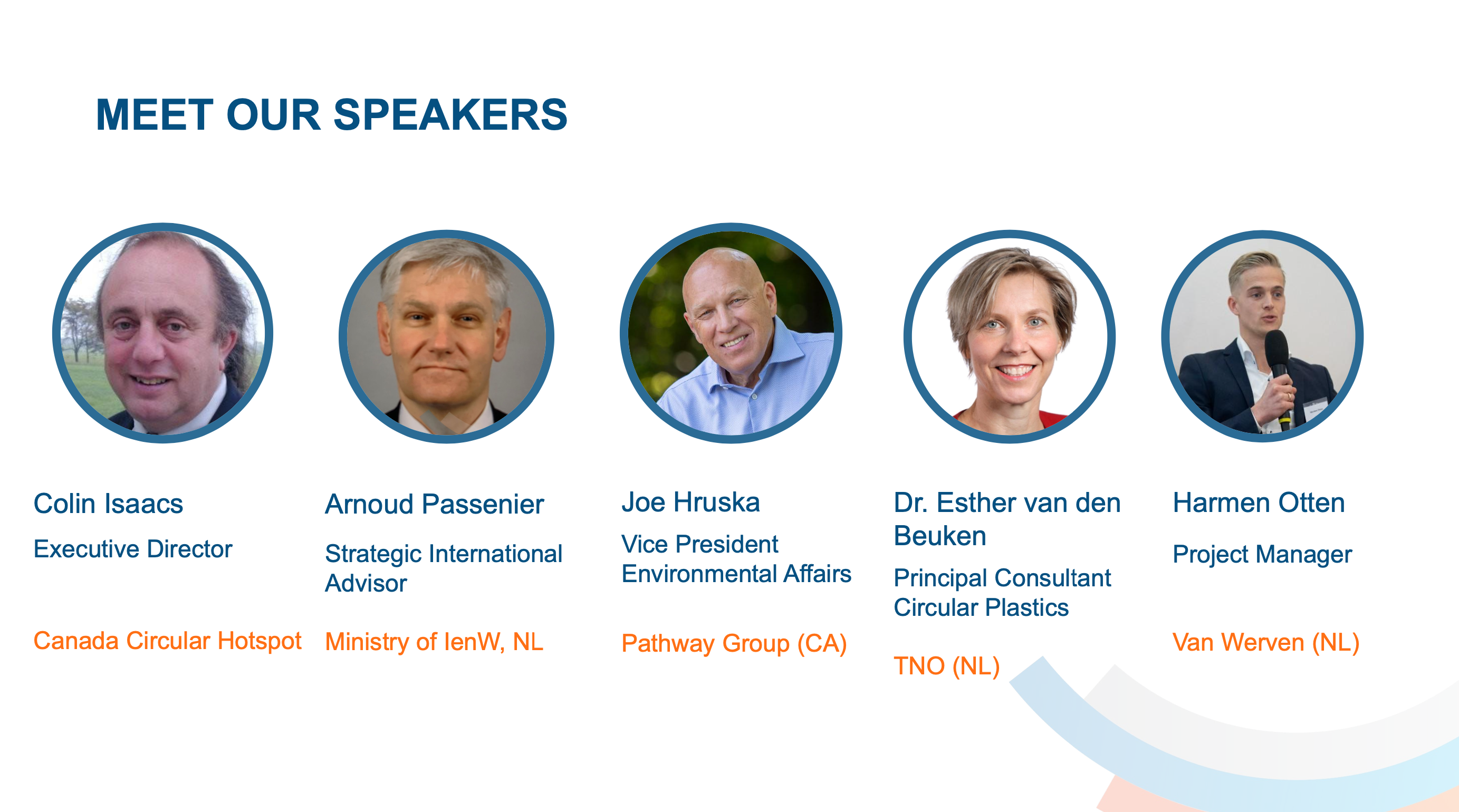Webinar: Circular Plastics in Canada and the Netherlands
April 11, 2023
In collaboration with the Consulate General of the Kingdom of the Netherlands in Toronto, Canada, Holland Circular Hotspot hosted an interactive session on circular plastics. Through their presentations and a live Q&A, experts and practitioners shared insights into the latest policy and technology developments that are turning plastics circular in the two countries. The topics discussed included single-use plastics and related policies and bans, circular design and alternative materials for plastics, innovations to enhance recycling and successful collection and sorting systems.
Did you miss the event? Scroll down to rewatch it on YouTube, browse speakers’ presentations and learn about our key takeaways.

Key Takeaways
The speakers’ panel featured stakeholders from both the public and private sector, and from both Canada and the Netherlands. The 6 presentations and the closing discussion aimed at addressing the most urgent and recent developments in the field of plastics policy and technological innovation.
What are relevant policies and regulations at national and international level when it comes to making plastics circular? What technologies in plastics design, reuse and recycling are paving the way towards closed loops? How are challenges overcome and opportunities created for market actors?

Here some key messages shared by our expert speakers:
- “With only ~10% of all Canadian end-of-life plastics being recycled today, there is great potential for innovators to get involved in the circular transition. Canada’s population is spread thinly over a considerably large territory. It will thus be key to find solutions to lower the costs of transportation of post-consumer plastics, making recycled material competitive with virgin resources” – Colin Isaacs, Executive Director of Canada Circular Hotspot, CA
- “In the NL, circular plastics policies take all 10 circular strategies into account (slide 18). We got here by making it practical and working together with industry actors to promote redesign programs, develop guidelines on using less and mono-materials, develop roadmaps on reuse and refill systems and investing in testing facilities for sorting and recycling” – Arnoud Passenier, Strategic International Advisor at Netherlands International Department Ministry of Infrastructure & Water Management, NL
- “Canada has recently started resorting to plastics bans, but this has also huge impacts on the CE. There should be instead a collaboration between industry and government in finding innovative ways to sustainably manage plastics while also benefitting Canada’s economy. The future is making plastics more effective for society and less impactful on the environment, together ” – Joe Hruska, Vice President Environmental Affairs at Pathway Group, CA
- “The choice between mechanical and thermo-chemical recycling rests on the quality of the waste streams. When streams are considerably contaminated, then chemical technologies are more suitable despite these being energy-intensive. Recycling costs are still an issue when it comes to making recyclates competitive. This can be addressed by policies reflecting environmental impact in prices, then new chemical recycling technologies will become more viable ” – Dr. Esther van den Beuken, Principal Consultant Circular Plastic at TNO, NL
- “Nowadays, making an international plastics recycling company successful depends heavily on the local regulation. The higher the plastics disposal costs of landfill and incineration, the higher the viability for our business model. Virgin prices are also directly influencing the demand for and thus price of recyclates. That’s why implementing a ban on landfill of recyclable waste can significantly push recycling activities” – Harmen Otten, Project Manager at Van Werven Recycling, NL
- “When it comes CE best practices, no one size fits all industries, but many common principles can be identified. The main lessons learned from our Blue Box Program (slide 9) is that continuous improvement – even if through small incremental changes – and collaboration are instrumental in uncovering the new for new innovations and enhanced circular practices” – Joe Hruska, Vice President Environmental Affairs at Pathway Group, CA
